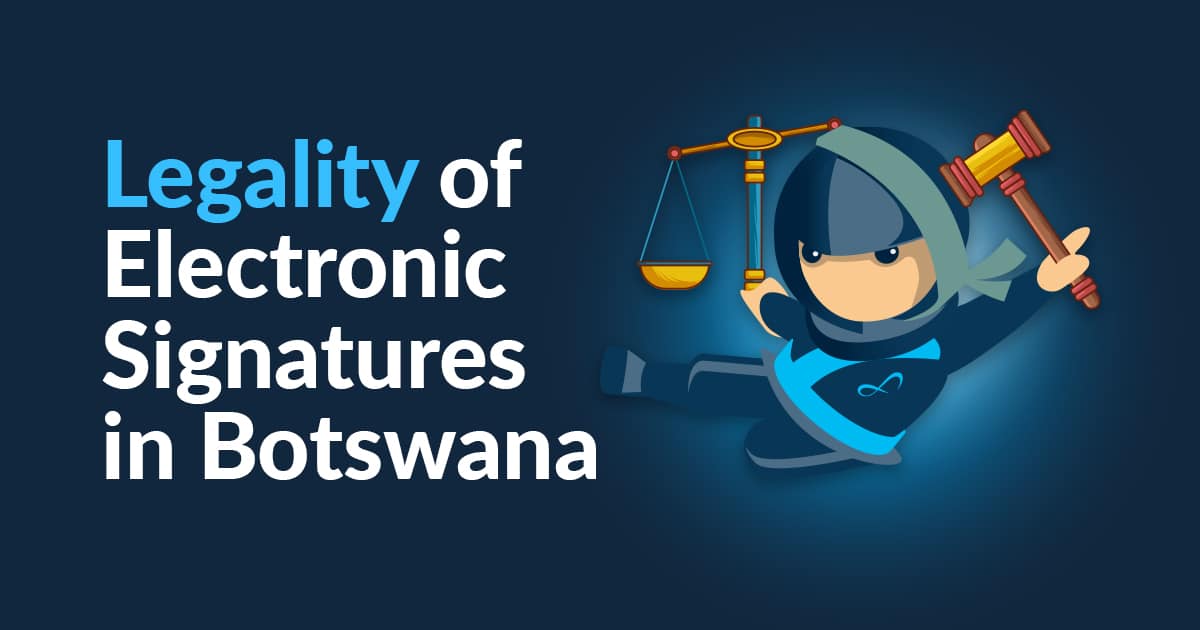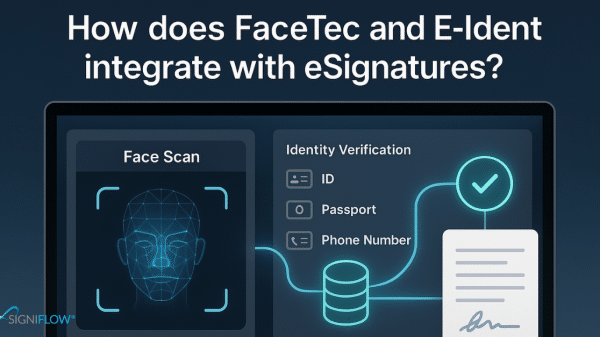Electronic signatures have become essential to any business as they provide security, convenience and efficiency in various business transactions. A comprehensive understanding of the legal framework of electronic signatures is critical, particularly in countries like Botswana, where specific regulations determine their validity and enforceability.
Let’s delve into the legality of electronic signatures in Botswana and analyse the requirements:
What is the legality of electronic signatures in Botswana?
Electronic signatures are recognised as legally binding in Botswana under the Electronic Communications and Transactions Act (ECTA) of 2014. However, certain conditions must be fulfilled for electronic signatures to be considered valid under the law. These requirements include:
- Identification of the signatory
- Demonstration of the signatory’s intention to sign the document
- Ensuring the reliability and security of the electronic signature
It is crucial to comprehend and comply with these prerequisites to guarantee the legitimacy and implementation of electronic signatures in Botswana.
Benefits of Electronic Signatures in Botswana
In Botswana, the use of electronic signatures provides several advantages for both individuals and businesses. Some of the key advantages include:
- Increased efficiency: Electronic signatures streamline the signing process, reducing the time and resources required to complete transactions.
- Cost savings: By eliminating the need for paper-based documentation and physical presence, electronic signatures help businesses save on printing, shipping, and storage costs.
- Convenience: Electronic signatures allow parties to sign documents remotely, enabling transactions to be conducted anytime, anywhere.
Electronic signatures offer a range of advantages that can prove to be invaluable for businesses seeking to enhance their productivity and optimise their operations in Botswana’s dynamic digital environment.
Best Practices for Electronic Signature Usage
It’s important for both individuals and businesses to adhere to best practices for utilising electronic signatures to minimise potential risks and maintain compliance, including:
- Selecting reputable electronic signature solutions that comply with Botswana’s legal requirements
- Implementing robust security measures to protect electronic signatures and documents
- Maintaining clear records and documentation to support the validity of electronic signatures in legal proceedings.
By adopting these best practices, organisations can confidently leverage electronic signatures to streamline transactions and enhance business operations in Botswana.
To fully leverage the advantages of electronic signatures while complying with relevant regulations, it is important for businesses and individuals to have a clear understanding of the legal framework, meet all requirements, implement necessary safeguards, and follow best practices.



























